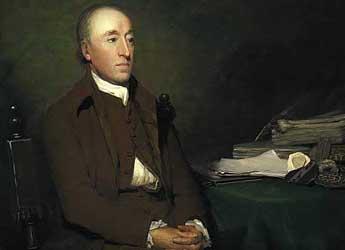The study of the Earth’s history has long fascinated scientists and thinkers throughout history. One such scientist, who made a groundbreaking discovery about the Earth’s past, was Scottish geologist James Hutton.
Hutton is known as “The Man who Discovered the Abyss of Time” for his pioneering work in geology, which challenged the prevailing beliefs of his time and set the stage for a new understanding of the Earth’s history. By studying the rocks and geology of Scotland, Hutton realized that the Earth’s features were the result of gradual processes that had taken place over millions of years. This led him to propose the theory of uniformitarianism, which suggested that the Earth was much older than previously believed. Hutton’s discoveries had far-reaching implications for our understanding of the Earth’s history and for the development of modern geology. His legacy continues to inspire scientists and thinkers today.

Hutton was born in 1726 in Edinburgh, Scotland. His father was a successful merchant, but Hutton had a passion for science and the natural world from a young age. He studied at the University of Edinburgh, where he became interested in geology and began to question the prevailing theories about the Earth’s history.
At the time, the prevailing belief was that the Earth was only a few thousand years old and that its features were the result of a catastrophic event such as Noah’s flood. This theory was based on religious beliefs rather than scientific evidence, and it was widely accepted by both religious and scientific communities.
Hutton, however, was not satisfied with this explanation. He began to study the rocks and geology of Scotland, and he quickly realized that the Earth’s features could not be explained by a single catastrophic event. Instead, he observed that the rocks and landscapes he studied were the result of gradual processes that had taken place over millions of years.
Hutton’s observations led him to propose a new theory of the Earth’s history. He argued that the Earth was much older than previously believed and that its features were the result of gradual processes such as erosion, sedimentation, and volcanic activity. He called this theory uniformitarianism, and it represented a radical departure from the prevailing beliefs of his time.
Hutton’s ideas were met with resistance by both religious and scientific communities, but he continued to develop and refine his theory. He spent many years studying the geology of Scotland and published his findings in a book called “Theory of the Earth” in 1795. The book was widely read and influential, and it helped to establish Hutton as one of the most important scientists of his time.
Hutton’s discoveries had far-reaching implications for our understanding of the Earth’s history and for the development of modern geology. His ideas paved the way for the work of other scientists such as Charles Lyell and Charles Darwin, who built on Hutton’s theory of uniformitarianism to develop the theory of evolution.
Today, Hutton is remembered as a pioneer of modern geology and a visionary scientist who challenged prevailing beliefs and set the stage for a new understanding of the Earth’s history. His contributions to science have had a lasting impact, and his legacy continues to inspire scientists and thinkers today.




